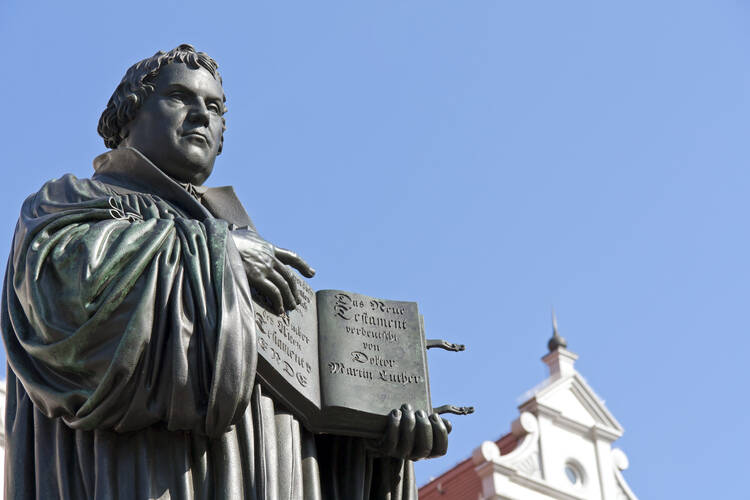As Lutherans and Catholics concluded the first-ever ecumenical commemoration of the Reformation, exactly 500 years after that event divided Christianity, the Vatican’s Pontifical Council for Promoting Christian Unity and the Lutheran World Federation issued a joint statement in which they listed some of the blessings this year has brought and declared that it has shown clearly “that what we have in common is far more than this which still divides us.”
They highlighted among the main blessings the fact that “for the first time Lutherans and Catholics have seen the Reformation from an ecumenical perspective,” which “has allowed new insight into the events of the sixteenth century which led to our separation.” Furthermore, they recognized that “while the past cannot be changed, its influence upon us today can be transformed to become a stimulus for growing communion, and a sign of hope for the world to overcome division and fragmentation.”
“While the past cannot be changed, its influence upon us today can be transformed to become a stimulus for growing communion.”
The Vatican released the joint statement today, Oct. 31, on the last day of this year-long ecumenical commemoration of the Reformation, which is also the day when 500 years ago Martin Luther promulgated his 95 theses that led to the split with the Catholic Church that impacted so heavily on the history of Europe.
In this statement, both sides expressed gratitude for “the spiritual and theological gifts received through the Reformation” and recalled that during the year “we begged forgiveness for our failures and for the ways in which Christians have wounded the Body of the Lord and offended each other during the five hundred years since the beginning of the Reformation until today.”
They thanked God for “the ecumenical journey that we have travelled together during the last fifty years” and stated that “this pilgrimage, sustained by our common prayer, worship, and ecumenical dialogue, has resulted in the removal of prejudices, the increase of mutual understanding and the identification of decisive theological agreements.”
In this statement, both sides expressed gratitude for “the spiritual and theological gifts received through the Reformation.”
They recalled that this year of ecumenical commemoration began in Lund, Sweden, exactly one year ago, Oct. 31, 2016, when Pope Francis and the then-president of the World Lutheran Federation, Bishop Munib A. Younan, led an ecumenical prayer service and signed a joint statement with the commitment to continue the ecumenical journey together toward the unity that Christ prayed for at the Last Supper. On that day, too, their respective humanitarian and relief organizations—Caritas Internationalis and the Lutheran World Federation World Service—signed a letter of intent to work together in the service of those in need.
In the statement, they rejoiced at the fact that in 1999 the Lutheran World Federation and the Roman Catholic Church had signed the “Joint Declaration on the Doctrine of Justification,” which has been a major milestone on the journey to Christian unity. They recalled that the World Methodist Council had also signed this joint declaration in 2006 and that during the past year the World Communion of Reformed Churches did likewise. They highlighted the fact that on this very day the declaration “is being welcomed and received” by the Anglican Communion at a solemn ceremony in Westminster Abbey. Because of all this they said, “our Christian communions can build an ever-closer bond of spiritual consensus and common witness in the service of the Gospel.”
Looking to the future, they committed their respective communities “to continue our journey together, guided by God's Spirit” toward “the greater unity” willed by Christ, and they announced their intention “to discern in a prayerful manner our understanding on Church, Eucharist and Ministry, seeking a substantial consensus so as to overcome remaining differences between us.”
The full text of the joint statement is available here.











When the two sides meet to talk about resolving differences, what, specifically, do they discuss? What, exactly, are the main issues which would prevent immediate resolution? On which issues have compromises been made and what has been the concrete result of the compromises? What's next on the issue agenda?
For a realistic, truly Catholic view on the topic, read https://dwightlongenecker.com/a-new-springtime-of-ecumenism. I've no interest in watered-down liberal Catholicism.
I am looking forword to the first-ever joint catholic-lutheran commemoration of the Council of Trent with both sides expressing gratitude for “the spiritual and theological gifts received through the Catholic Reformation.”